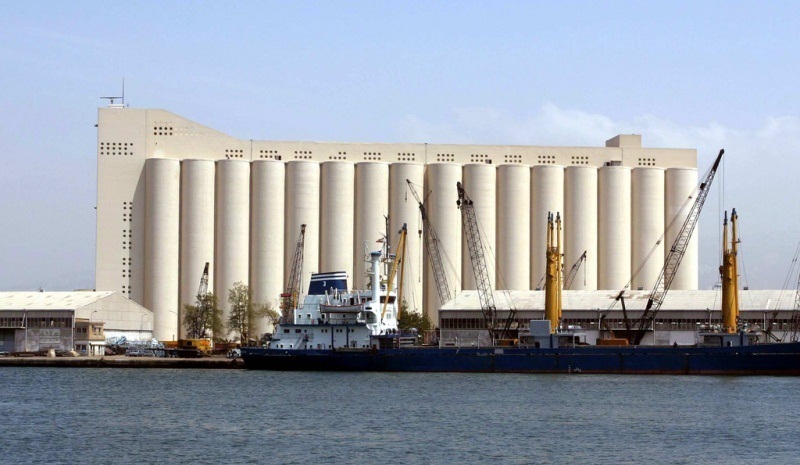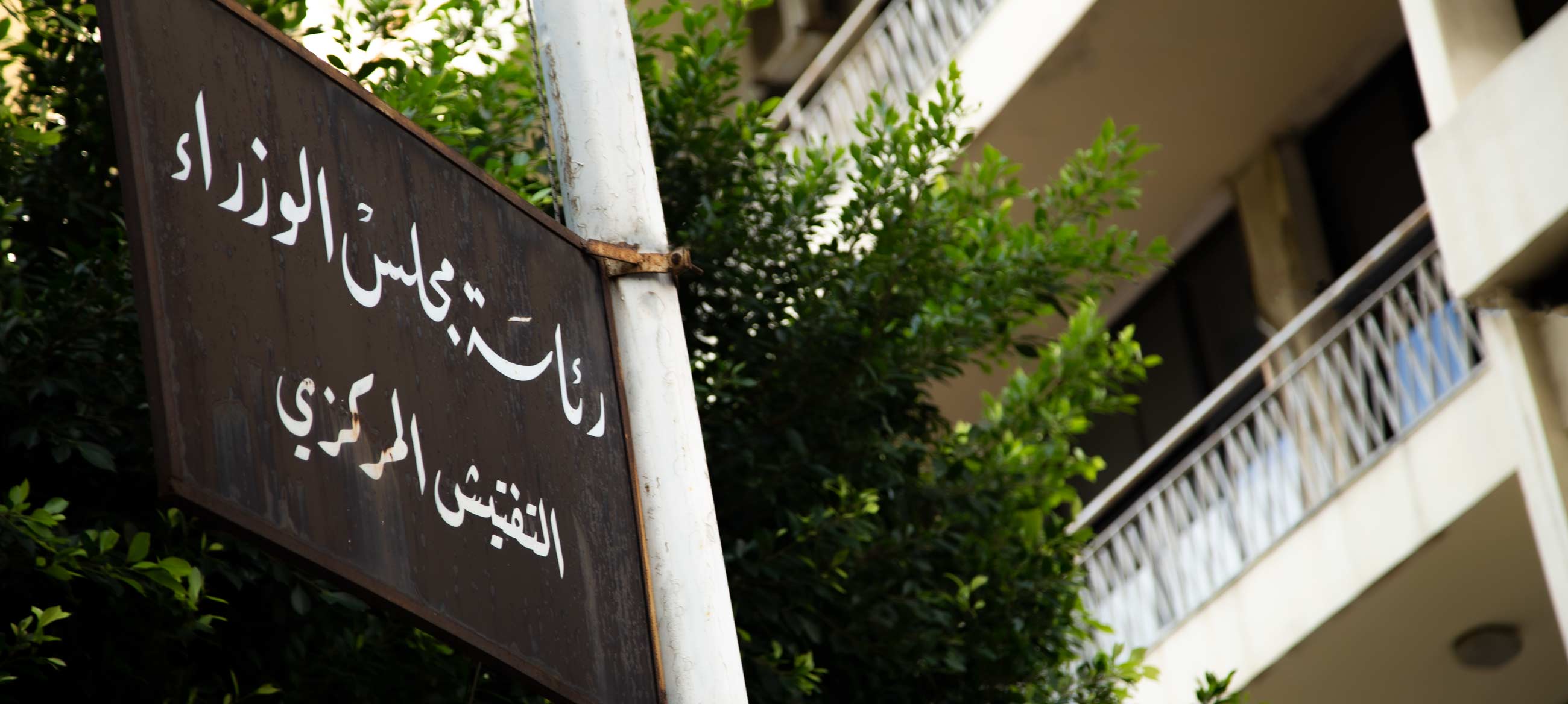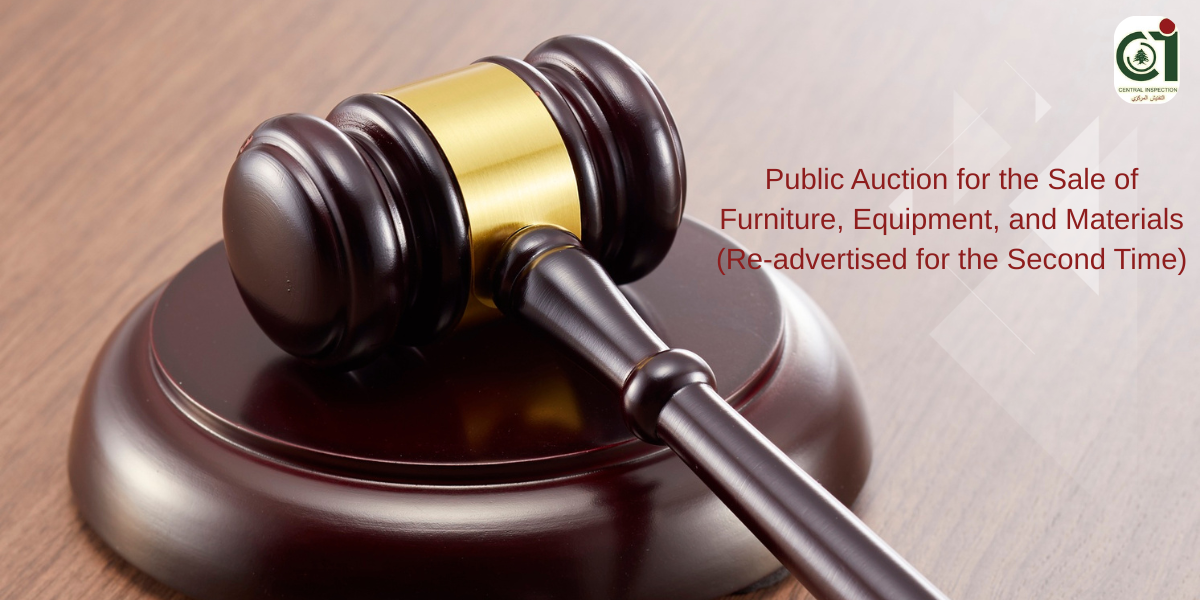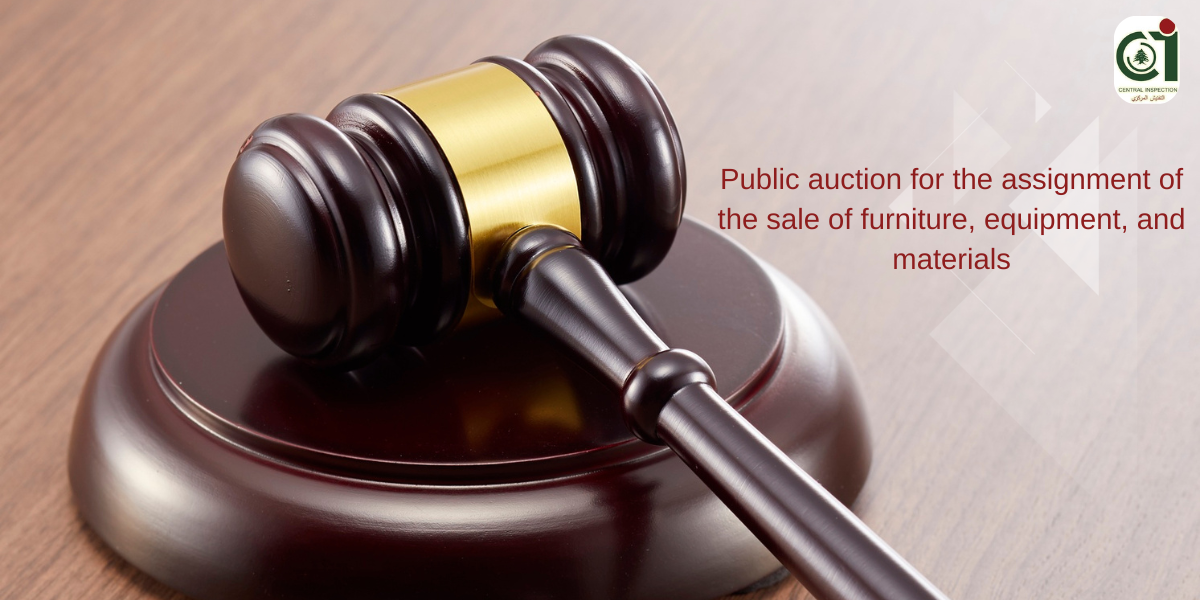Individuals can file complaints or claims to the Central Inspection against administrations falling within its remit, or against the employees or workers of these administrations, for investigation and establishment of facts.

"In the fight against corruption, no corrupt will be spared." Those were the words that his Excellency President Michel Aoun chose to underline his determination to fight this battle tirelessly. This determination is also echoed by those who are close to the President, as well as by opponents from different directions, as big cases of corruption are being uncovered successively. The Finance and Budget Committee is forging ahead with its attempts to unveil cases of "electoral employment", which are in violation of the 2017 Salary Scale Law. However, the effectiveness and outcomes of such fight require parallel administrative and procedural reforms, a mission undertaken by the Central Inspection since Judge Georges Attieh took office. Judge Attieh adopted a new approach for oversight over public administrations and institutions, in order to determine responsibilities and avoid falling into the same mistakes, if any, that wrong the public. All of these efforts are being deployed while the most important oversight authority suffers from a severe lack of cadre, personnel and inspectors, which explains the delay in the work of inspectors.
In this context, Al-Markazia Central News Agency was informed that a team of health inspectors and experts form the Research Center, supported by a State Security force, visited the wheat silo facilities in Beirut, took samples and noted down some observations. Overall, the inspectors left with a positive impression regarding the hygiene of the storage warehouses. Informed sources told Al-Markazia that a team of financial, engineering and administrative inspectors are systematically investigating cadastral departments in Beirut, Baabda, Metn, Aley, Shouf, Jounieh and Byblos, as part of a plan developed by the Central Inspection. Sources revealed that the cases subject to inspection are being scrutinized, including cases related to planning, cadastral plans and parceling. The same sources indicated that the Central Inspection has been conducting financial and engineering investigations for the past two weeks in Sin El Fil and Hazmiyeh, and that the Central Inspection also opened an investigation into Customs almost ten days ago, i.e. before the outbreak of widely televised dispute between the Director-General of Customs, Badri Daher, and the Head of the Higher Customs Council, Assaad Toufaili, over the procurement of scanner machines.
In response to questions about the timing of this campaign, which coincides with increasing "official" statements on the need to fight corruption, sources indicated that more than 70% of the Central Inspection positions are not filled. However, the Central Inspection is steadily working on overcoming this obstacle, building on the approach adopted by Judge Attieh. The sources stressed that Judge Attieh has managed to lift the political cover, thereby encouraging everyone to "keep the doors of all ministries wide open to inspection."
His Excellency the Minister of Education and Higher Education, Mr. Akram Shehayeb, headed an administrative and legal meeting, during which the topic of higher education and the relevant regulatory committees under the Higher Education Council was discussed. The decision was made to restructure these committees (particularly the Technical Committee and the Higher Education Equivalency Committee), by adopting new processes that prevent any potential breach in composition and role. It was also decided to restructure the Higher Education Council in accordance with the laws in force, to enable it to perform its role more effectively, especially given that the responsibilities entrusted to the Council are highly important and are designed to ensure the proper functioning of the higher education sector as a whole.
Source: Al Markazia - Central News Agency | kataeb.org







 Facebook
Facebook Instagram
Instagram Youtube
Youtube Twitter
Twitter